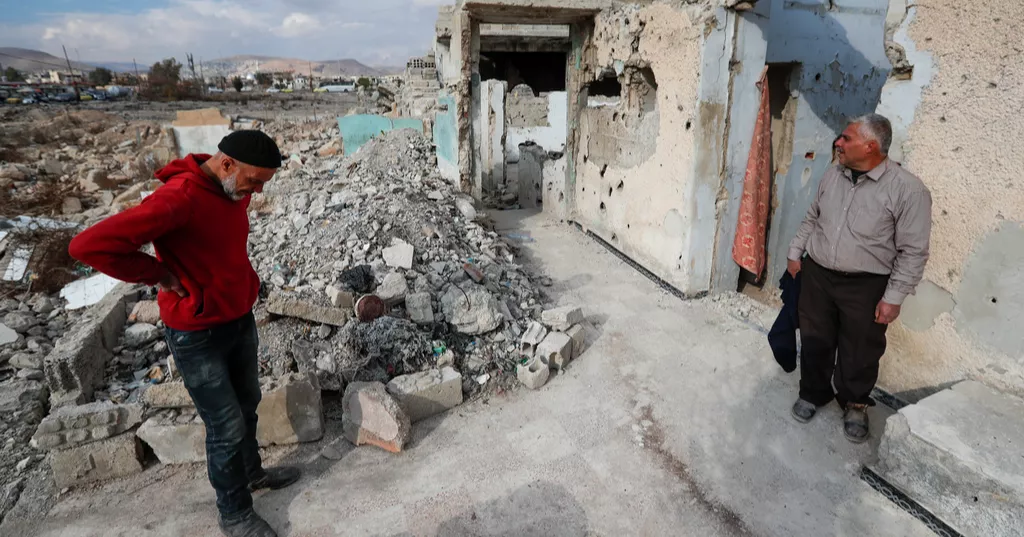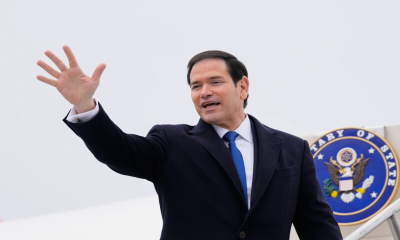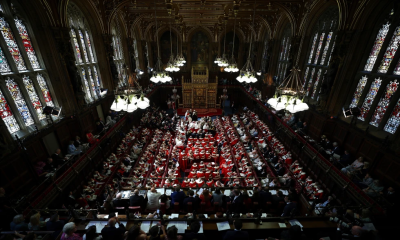Samir al-Baghdadi, a mechanic, is attempting to rebuild his family home in Qaboun, a district near Damascus, using his own hands.
His house, once a gathering place for family, is now reduced to rubble from years of civil war, reports AP.
Al-Baghdadi cannot afford workers or machinery to clear the debris and repair the house, earning just enough to feed his family.
However, with the high cost of rent in a nearby apartment, he is determined to rebuild gradually.
Though Assad was ousted last month in a swift uprising, the country’s severe economic conditions that sparked protests remain unchanged.
Years of civil war, corruption, and mismanagement, compounded by international sanctions, have decimated the economy, with inflation causing about 90% of the population to fall into poverty.
The U.N. World Food Program reports that more than 12 million people are uncertain where their next meal will come from.
Even though international sanctions have not been fully lifted and potential investors remain cautious, the hopes for Syria`s new rulers may be short-lived.
Qaboun and other areas of eastern Damascus became rebel strongholds in 2012, during the protests against Assad.
The neighbourhood suffered heavy bombardment, including from the Islamic State group.
Although government forces regained control in 2017, al-Baghdadi was banned from returning until Assad`s ousting.
Despite the challenges, al-Baghdadi hoped the political change would lead to better times.
However, issues such as power outages and fuel shortages persist. Families have relied on humanitarian aid and remittances from abroad, while the country’s infrastructure—electricity, water, and roads—needs extensive rebuilding.
Experts estimate that reconstruction could cost up to $400 billion, far more than the $250 billion predicted in 2017.
Although Gulf nations have pledged to work with Syria’s interim rulers, and the U.S. has relaxed some restrictions, many Syrians believe these measures are insufficient to revive the economy.
Economic researcher Sinan Hatahet criticises U.S. actions as inadequate, pointing out that restrictions on trade and reconstruction hinder the private sector`s ability to recover.
The lack of jobs, investment, and financial aid is putting enormous pressure on Syrian families.
The World Food Program’s executive director, Cindy McCain, warned that the ongoing food and economic crises are also a matter of security.
In Damascus, markets may appear lively, but the economy tells a different story.
Merchants, like Walid Naoura, note that despite the celebratory atmosphere, high prices have deterred customers. In a nearby workshop, carpenter Abou Samir works by hand, unable to power his equipment due to frequent electricity cuts.
His sons send him money from abroad, but he refuses to stop his trade.
Back in Qaboun, al-Baghdadi reflects on his modest progress—connecting a single lightbulb to electricity but still lacking running water.
Despite these challenges, he hopes to move back into his home before summer, even though it`s far from complete, believing that living in his own home is preferable to any luxury elsewhere.





-20260220065859.jpeg)
-20260219110716.webp)
-20260219054530.webp)


-20260222063838.webp)







-20260221022942.jpg)
-20260221022827.webp)


















